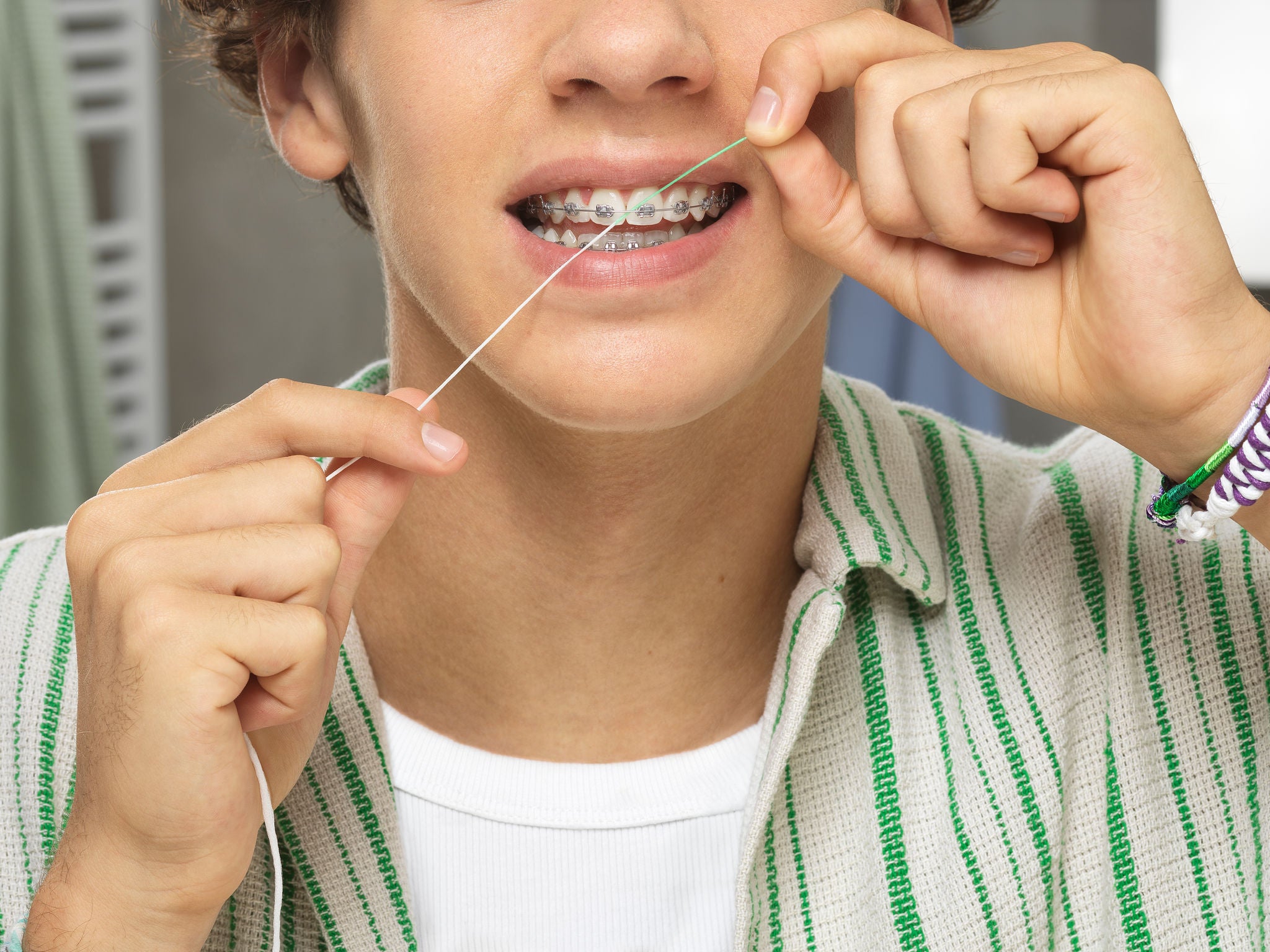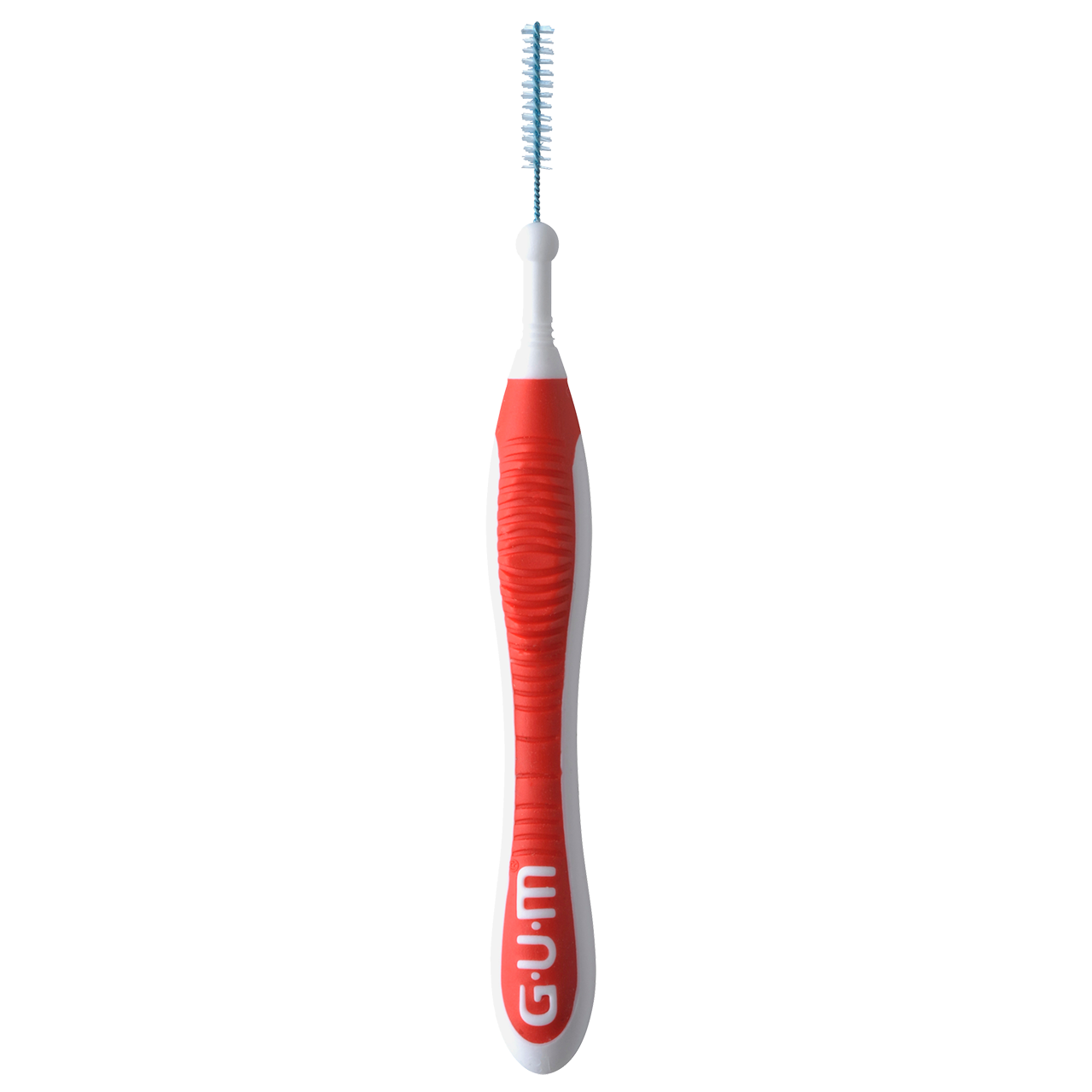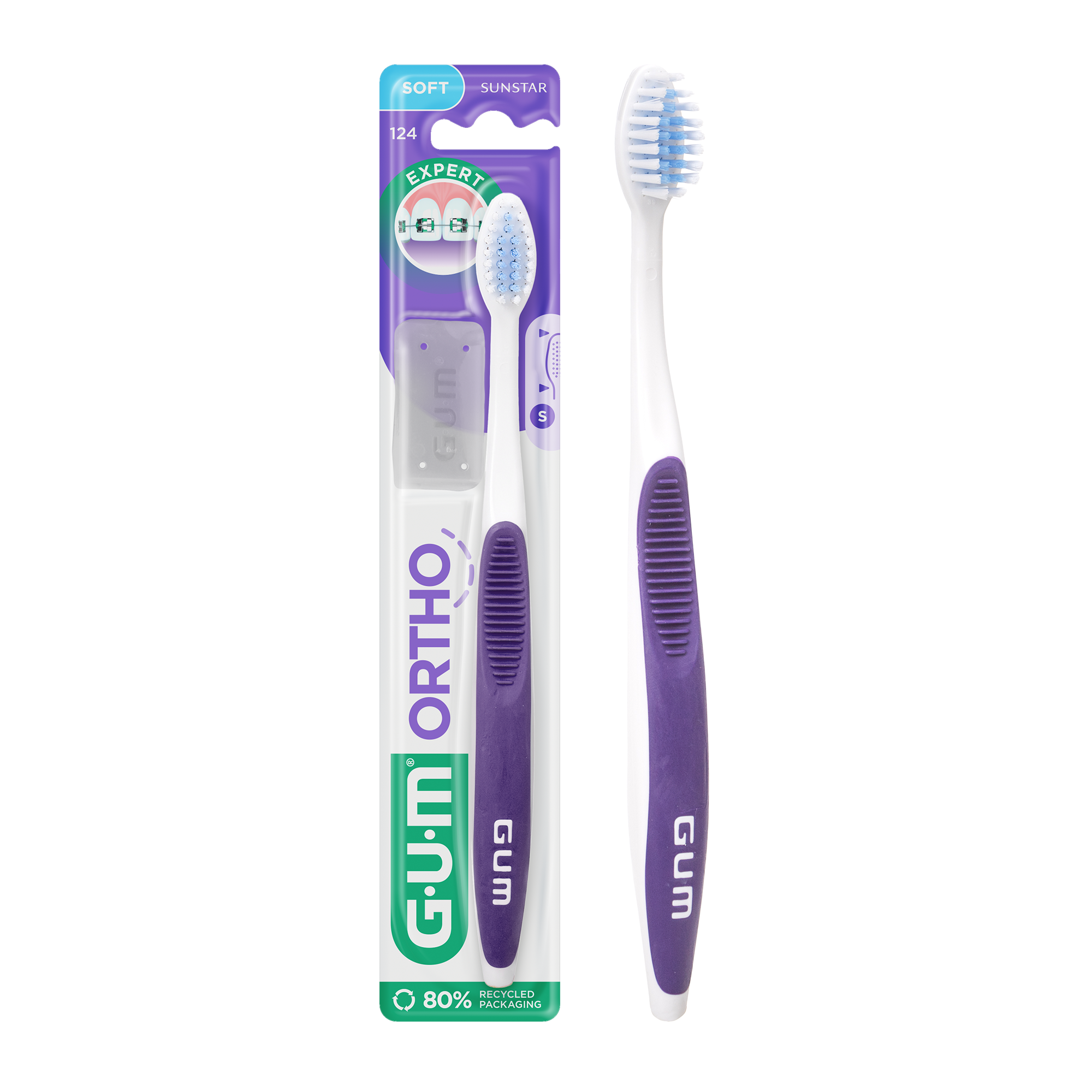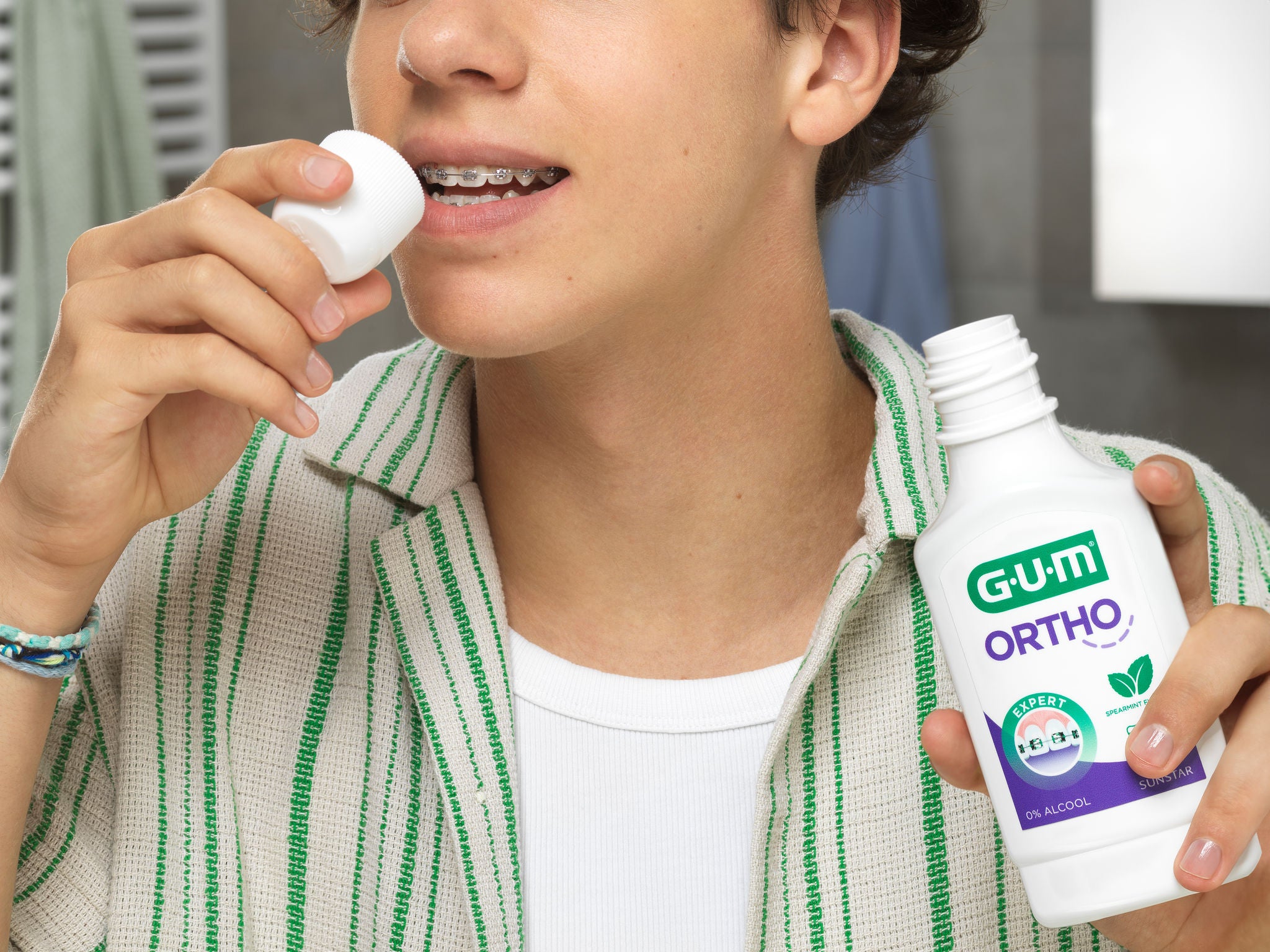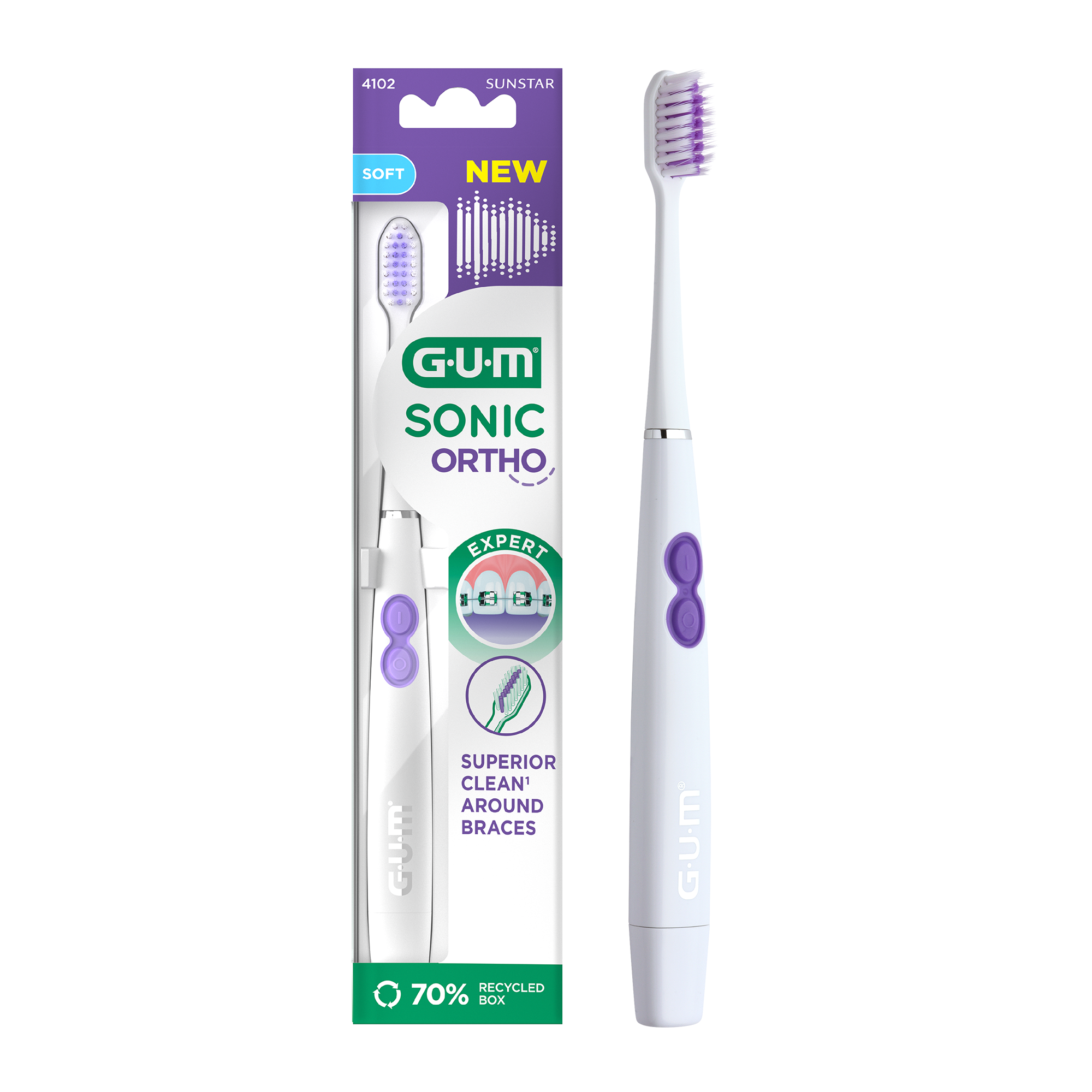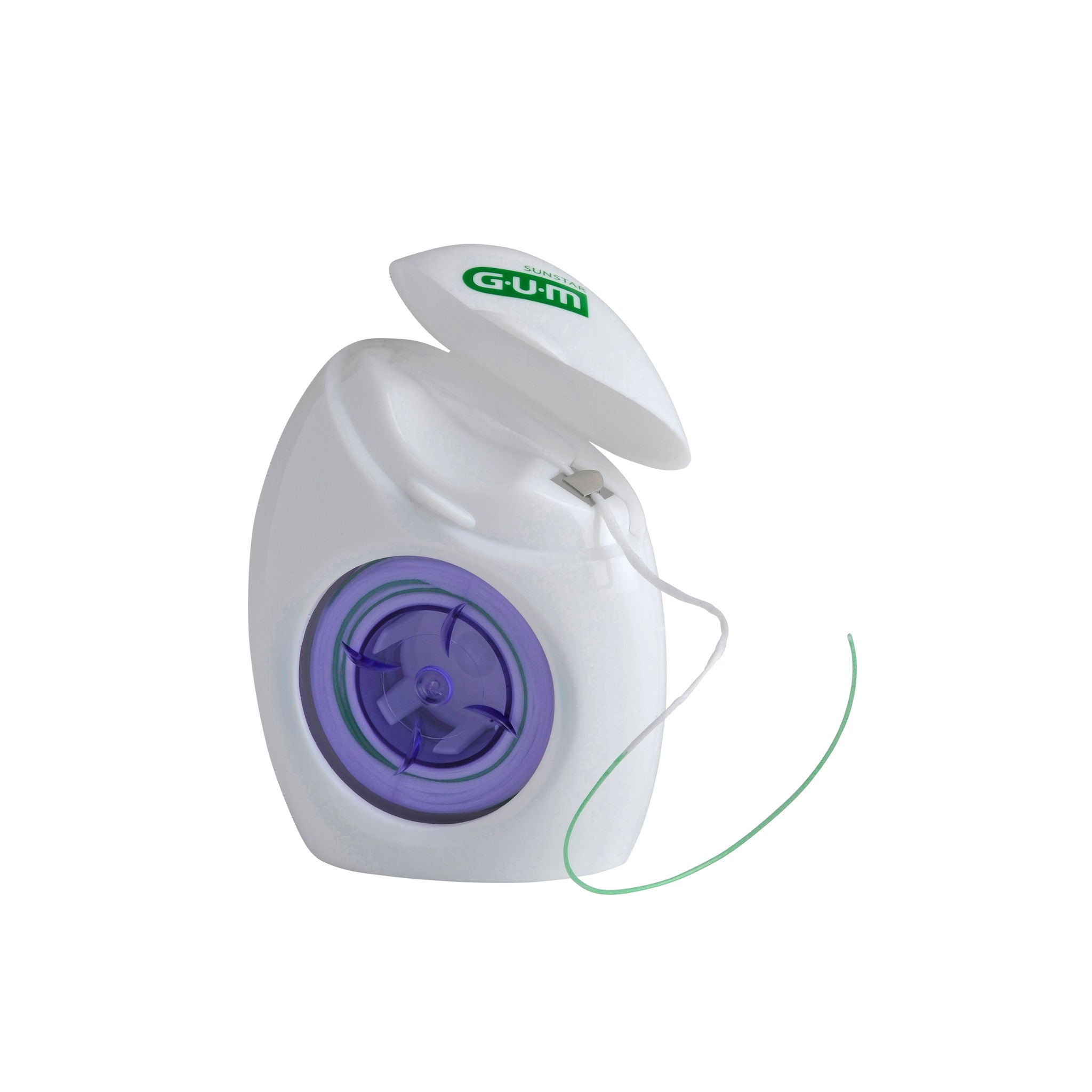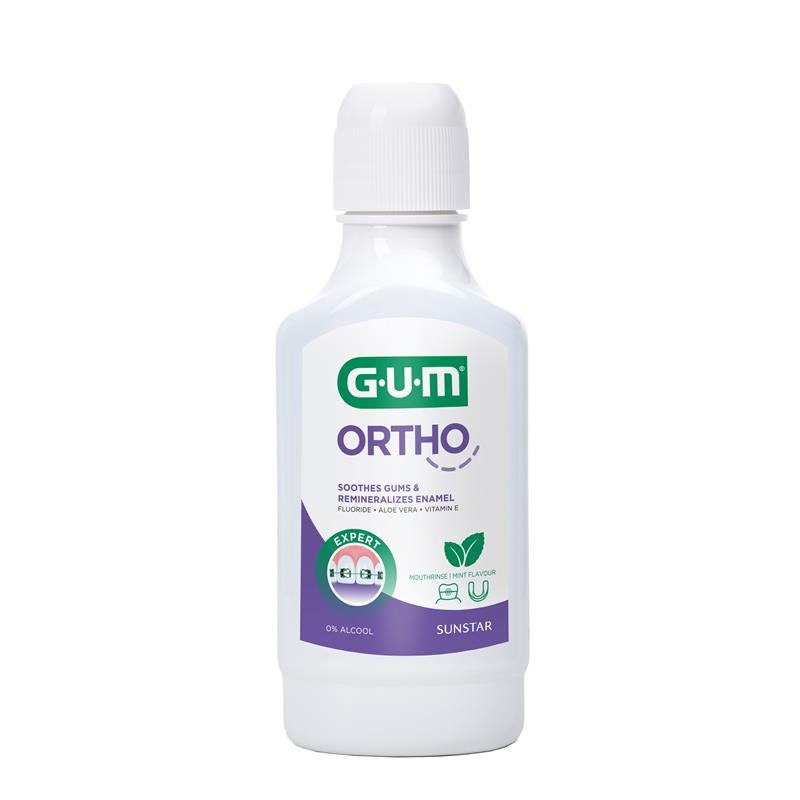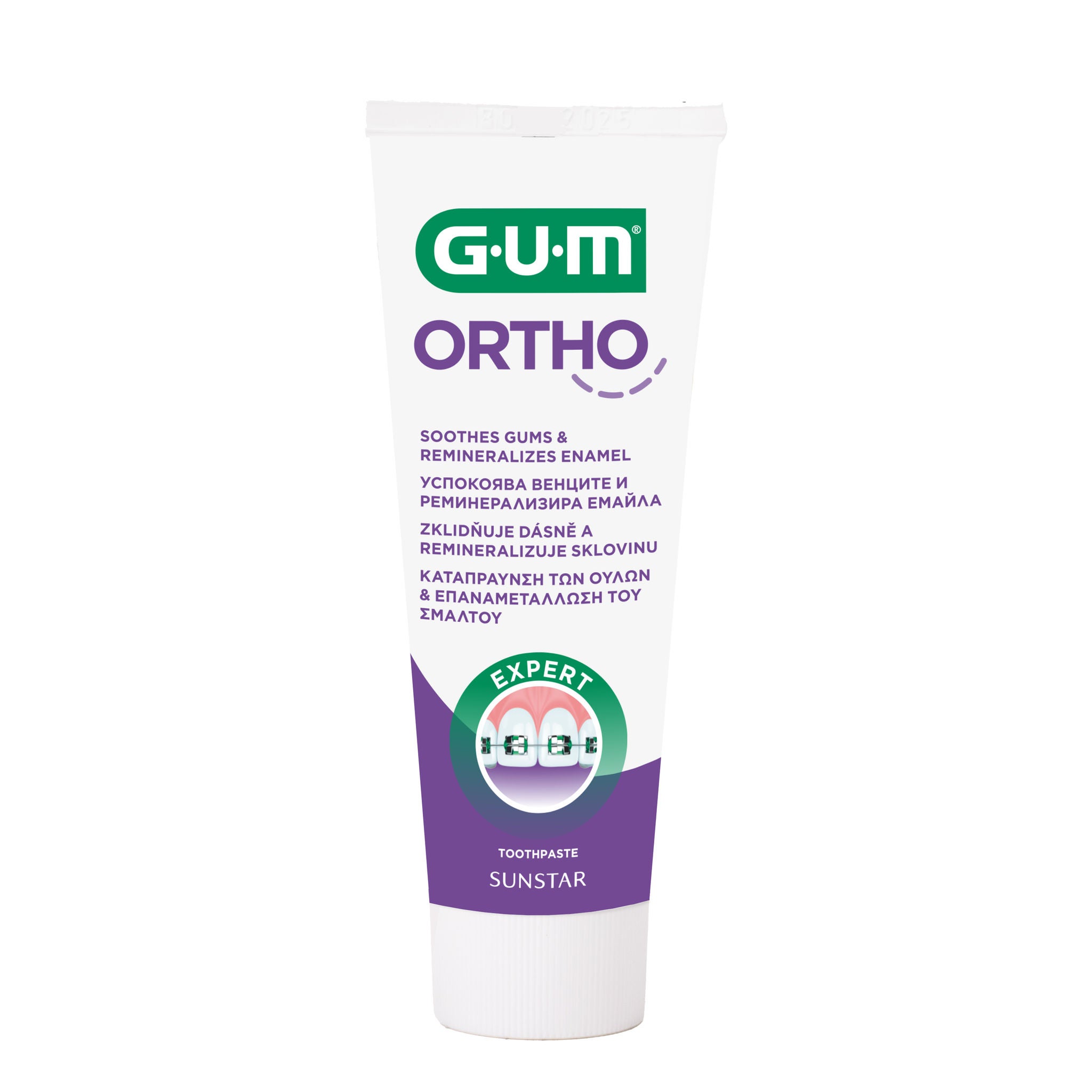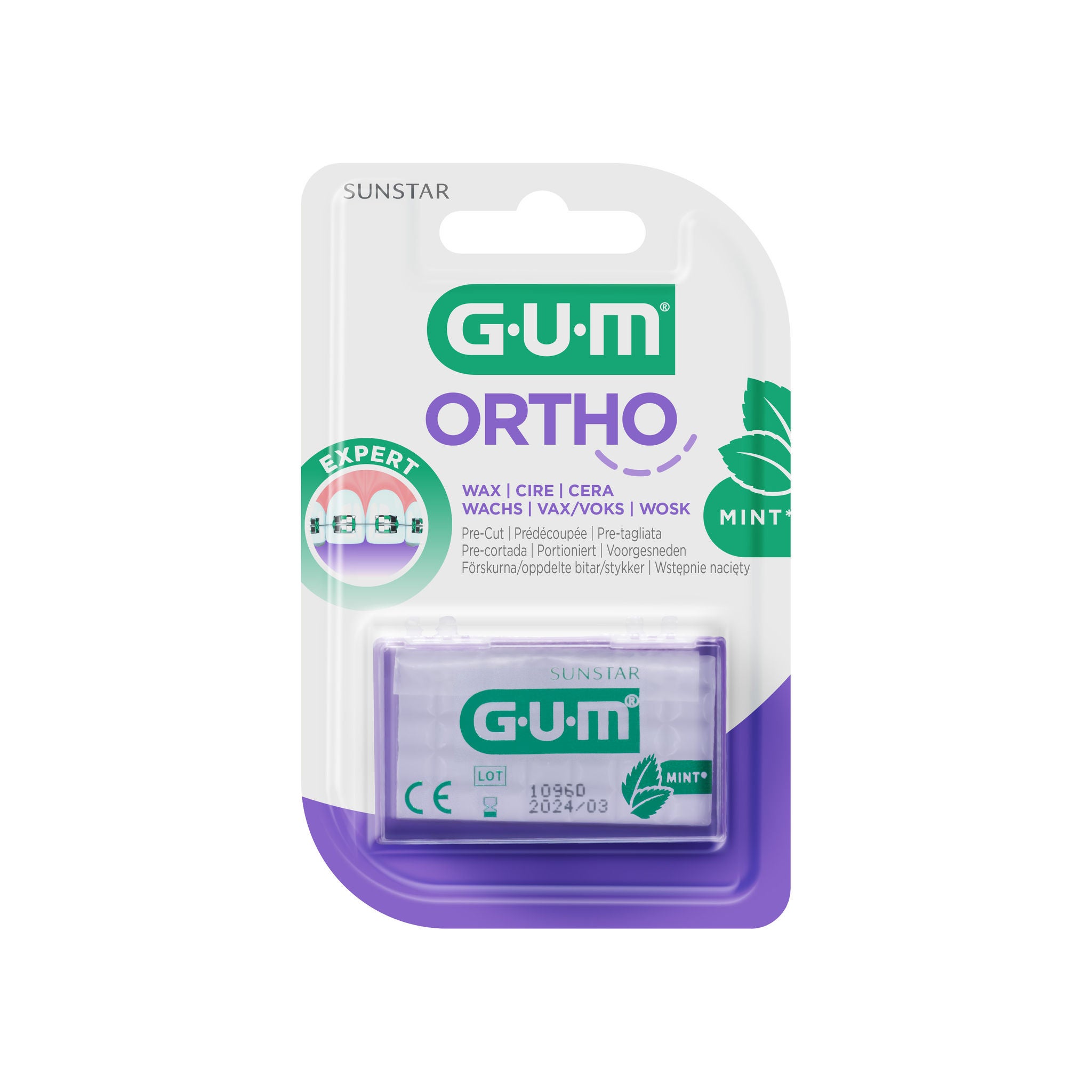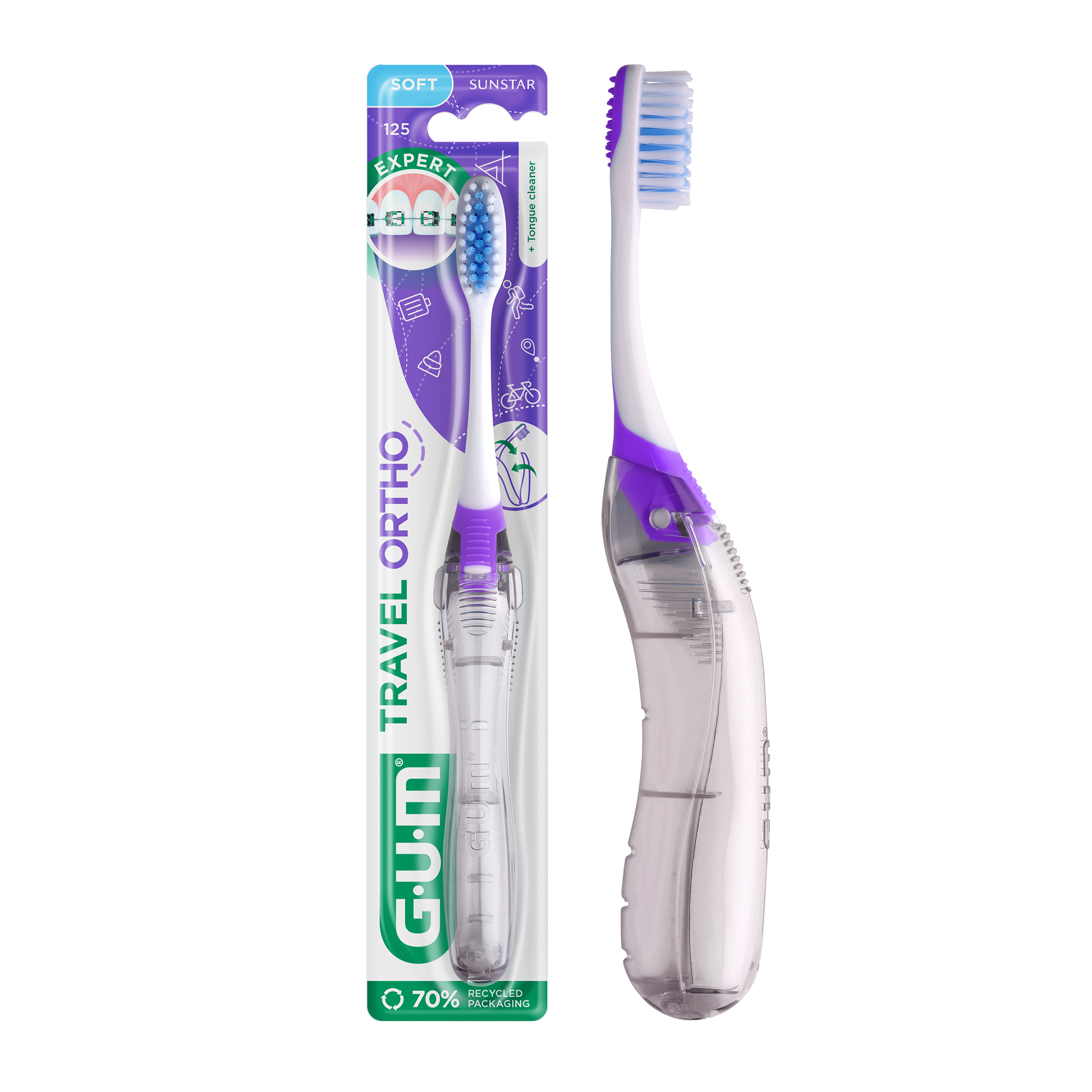How to Clean your Teeth with Braces to Keep them Healthy
Many people will experience orthodontic treatment at some point in their lives to improve their smile and align their teeth. Maintaining a complete daily oral care ritual while undergoing orthodontic treatment comes with some unique challenges — but we’ve got solutions!

If you wear braces, then you’ll know that cleaning around and under wires and brackets is extremely hard. You can make it a little easier by adopting a simple 1-2-3 routine: clean between teeth, brush, rinse.
Follow our step-by-step guide for some top tips from professionals.
Why is cleaning so important during my orthodontic treatment?
Keeping your mouth clean during your orthodontic treatment can be more difficult and time-consuming than usual. But if it’s not done properly, it might lead to serious issues, as braces act as a trap for food particles and bacteria.
As you may already know, bacteria are responsible for several oral issues, so if you wear braces you are at risk more than others. These include:
- Dental plaque build-up. This sticky, pale yellow film on the surface of your teeth is made up of bacteria. If not removed, it can cause tooth decay, gum disease, and other issues.
- White spots on teeth. When plaques and cavities attack your teeth, the enamel becomes weak and white spots appear.
- Cavities. Cavities, also known as tooth decay or caries, are holes in your teeth. Early signs include chalky white spots on the surface of your tooth that can change colour over time, ranging from yellowish to brown or black. Eventually, these spots become cavities and can cause pain, infection, or even tooth loss.
- Gum inflammation. When plaque accumulates between teeth, you might experience swollen, reddish, tender, or bleeding gums. This is called gingivitis and it is the first stage of gum disease. While gingivitis is still reversible, if it progresses into the more severe periodontitis, irreversible damage to your gums and jawbone will occur.
- Sores and blisters. If a wire breaks or sticks out of a bracket or a band poking your cheek, tongue or gum, painful and uncomfortable sores and blisters can appear.
Speak to your dentist or orthodontist if you notice any of these symptoms.
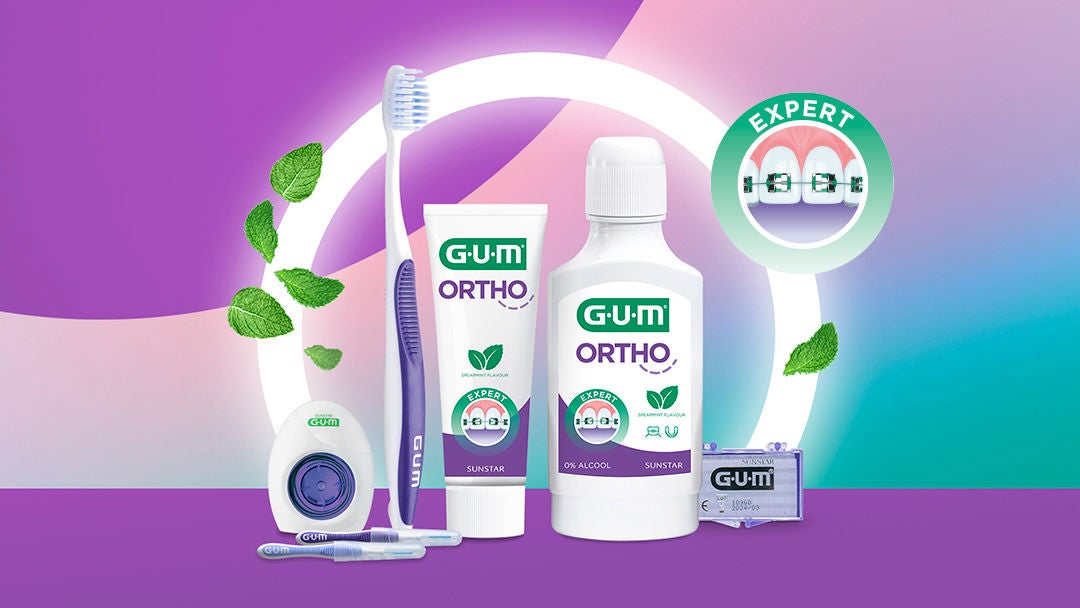
Explore the GUM ORTHO range for specialised solutions that support orthodontic care.
Frequently Asked Questions: Braces and oral care
Maintain good oral hygiene by brushing at least twice a day with a fluoride toothpaste, flossing daily with orthodontic floss or floss threaders, or using an interdental brush to clean between brackets. Regular visits to your dentist and orthodontist for professional cleanings and check-ups are also essential.
Your regular toothbrush may not effectively clean around braces. For thorough cleaning, our recommended GUM ORTHO range offers specially designed brushes adapted to the needs of orthodontic patients.
Replace your toothbrush every 3-4 months, or sooner if the bristles become frayed.
To prevent stains, brush your teeth after every meal and use fluoride toothpaste. Regular flossing and using an orthodontic mouthwash can also help. Avoid consuming staining foods and beverages like coffee, tea, and berries.
Yes, it is normal to experience some discomfort or soreness, especially after adjustments. This is usually temporary as your teeth and gums adjust to the pressure. If pain persists or becomes severe, contact your orthodontist for advice.
Avoid eating hard, sticky, or chewy foods like popcorn, nuts, gum, and caramel can damage your braces. It’s best to avoid these to prevent broken brackets or wires.
Troubleshooting common braces issues
Problem: Food particles stuck in braces
Solution: Use an interdental brush, rubber pick, or floss threader to gently dislodge food particles stuck between brackets and wires. Rinse your mouth with water or mouthwash to help flush out any remaining particles.
Problem: Discomfort or soreness after braces adjustment
Solution: Temporary discomfort after an adjustment is normal. To manage soreness, try rinsing your mouth with warm saltwater, which can help soothe irritation. Over-the-counter pain relievers can also be used, but consult with your orthodontist if the pain is severe or persists beyond a few days.
Problem: Braces causing gum irritation or sores
Solution: If braces are causing gum irritation or sores, apply orthodontic wax to the brackets or wires that are irritating your gums. Rinse with a warm saltwater solution to help soothe the irritation. If the irritation persists, consult your orthodontist for advice.
Problem: Difficulty cleaning around brackets
Solution: Use a specially designed orthodontic toothbrush with soft bristles to clean around brackets and wires. Use an interdental brush to reach between teeth and around brackets. Regular use of fluoride mouthwash can also help maintain oral hygiene and reach areas missed by brushing.
Problem: Loose bracket or wire
Solution: If a wire snaps or a bracket becomes loose while brushing, follow these steps to manage the situation until you can see your orthodontist:
- If the loose wire or bracket is causing discomfort, use orthodontic wax to cover the sharp ends and reduce irritation.
- Gently try to reposition the wire or bracket using clean fingers or tweezers. Be cautious to avoid pushing it further out of place.
- Refrain from eating sticky or hard foods that might worsen the issue. Stick to soft foods and avoid chewing in the affected area.
- Schedule an appointment with your orthodontist as soon as possible to have the wire or bracket repaired. In the meantime, maintain your regular brushing and flossing routine.
